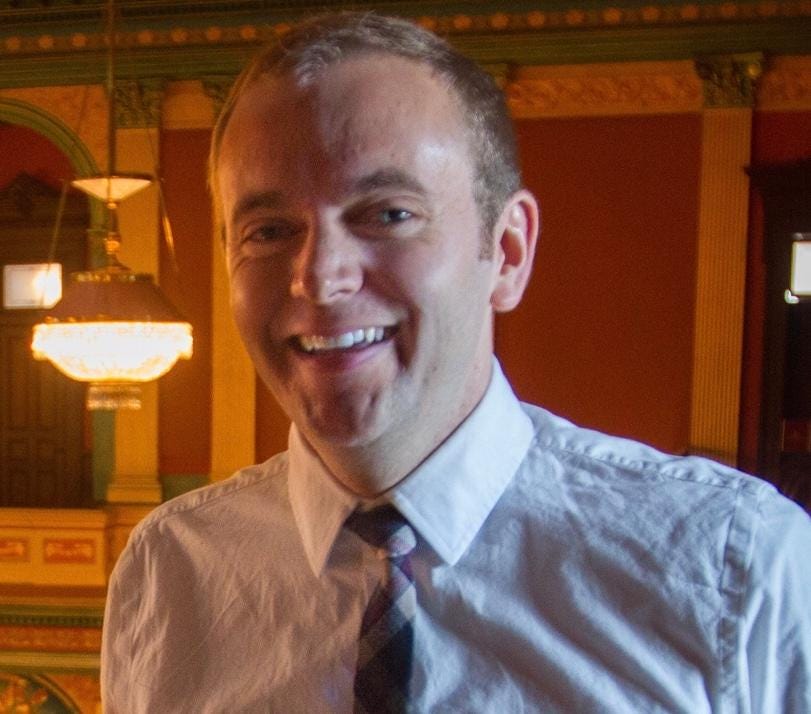Michigan tribal leaders request probe into casino's federal approval
 Craig Mauger
Craig MaugerLansing — Three tribal leaders from Michigan are asking for an investigation into the handling by former President Donald Trump's administration of a casino project planned for Muskegon County.
In a letter sent Monday to Mark Lee Greenblatt, the inspector general for the U.S. Department of the Interior, the tribal leaders contended that the off-reservation project of the Little River Band of Ottawa Indians gained federal approval in December in a bid to "create enormous controversy in the state of Michigan and in particular to Democratic Governor Gretchen Whitmer."
"We believe that this approval was driven by politics and a cynical attempt to politically harm Governor Whitmer because she was a fierce critic of President Trump and campaigned aggressively against his reelection in a state critically important to the Trump’s re-election campaign," wrote Bob Peters, chairman of the Match-E-Be-Nash-She-Wish Band of Pottawatomi Indians; Jamie Stuck, chairman of the Nottawaseppi Huron Band of the Potawatomi, and Tim Davis, chief of the Saginaw Chippewa Indian Tribe.

The letter is the latest wrinkle in the high stakes fight over the Muskegon County project, which has been in the works for longer than a decade. The effort's future now rests in the hands of Whitmer, who's facing pressure from West Michigan officials to approve it and opposition from others — including officials in Detroit, where three commercial casinos generate large sums of government revenue, to block it. However the governor decides will upset one of the two sides.
Tom Shields, spokesman for the Little River Band of Ottawa Indians, said Monday that it's common for outgoing administrations to give approval to long-standing applications to avoid long delays for the tribes while the next administration organizes.
"This is nothing more than a desperate legal maneuver by these tribes to stop 3,000 jobs and future economic development from coming to Muskegon County," Shields said of the letter seeking an inspector general investigation.
The proposed site for the new casino is in Fruitport Township near the interchange of Interstate 96 and U.S. 31. The Little River Band of Ottawa Indians purchased the property, about 60 acres total, in 2008. The land is 92 driving miles from the tribe's reservation in Manistee County.
On Dec. 16 — more than a month after the Nov. 3 election and before Trump left office — Tara Sweeney, assistant secretary of Indian affairs in Trump's administration, signed off on the project. The federal Indian Gaming Regulatory Act generally bans gaming activities on lands acquired in trust unless the secretary of Indian affairs in the Interior Department determines a project is in the best interest of the tribe and would not be detrimental to the surrounding community.
"The record reflects the proposed project will generate increases in economic activity directly and indirectly, and will create employment opportunities for the surrounding community," Sweeney wrote in her decision.
Now, Whitmer must concur in the determination within a year for the project to advance. The administration is reviewing the application and will provide an update when there is one, Whitmer's spokesman Bobby Leddy said last month.
In their new letter, the leaders of three other tribes, which have their own casinos in Michigan, say they met with John Tahsuda, former assistant secretary of Indian affairs, on Dec. 4 — 12 days before the determination was made. Tahsuda told them at the time a decision was not imminent on the Little River Band’s application, according to the letter.
The leaders want the Inspector General's office to probe whether "proper substantive and procedural processes were followed" and whether "the decision was inappropriately influenced by the politics of the federal elections."
Tahsuda didn't immediately provide a response Monday to The Detroit News.
The tribe leaders had been told that Tahsuda "knew a positive decision on the Little River Band casino application would force Gov. Whitmer to make a very difficult decision on a gaming matter that has been historically controversial," according to their letter.
Shields, spokesman for the Little River Band, countered that "giving the governor an opportunity to create 3,000 jobs with the stroke of her pen is hardly putting her in a difficult position."
Also, the Michigan tribal leaders said in their letter that the Trump administration approved a casino project of the Kiowa Indian Tribe of Oklahoma on Dec. 16. Tahsuda is a member of that tribe, the leaders said.
"We believe that Mr. Tahsuda should have recused himself from any decision affecting his own Tribe and we ask that your office investigate this matter as well," the letter from the leaders said.
cmauger@detroitnews.com